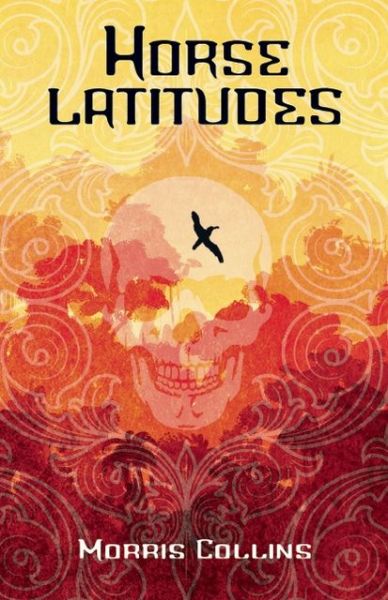So I sometimes read Roger Cohen, a columnist in the New York Times, who (sometimes) writes reasonably well about Israel and Europe, but his recent piece titled “Twitter-Bashing Bores” (here) illustrates a media obsession I’ve come to notice: Rabid and often dim-witted defense or shameless promotion of social media. Cohen is basically ranting against baby boomers ranting against social media. Perhaps Cohen and I move in such disparate social circles that we’re seeing the world through drastically different windows: As a professor I interact with young people daily, know (to some extent) the pluses and minuses of their use of social media, and live with it. I’ve come to use social media as well (sparingly), and form my own opinion—amusing at times, also an incredible time-suck. Cohen seems naive to the point of stupidity on the subject. For instance, many if not most classes allow the use of laptops in class (and tablets as well), and most buildings on my campus have wifi, so when you teach, sometimes you find your students distracted, staring at their screens, and you discover them shopping for shoes, scanning their Home screens on FB, or doing who-knows-what. Part of the art of teaching at the college level now is trying to get the students to focus as much as possible and to eliminate the distractions without eliminating the positive aspects of computer usage, and I do my best, and generally feel I’ve been able to learn a way to manage these distractions, to keep this to a minimum. I’ve talked with students about it, and they strongly voted (essentially unanimous on this subject) that I not ban laptops in class, and have made excellent arguments about being able to look up material we’re discussing. But I’m certainly not naive about the way things have changed in the last twenty years (my time of college teaching). Few students take notes anymore. That seems a lost art. Last semester I asked if any of them accessed their FB pages in class. The most memorable response was a follow-up question: “Do you mean in large lecture classes?” (I usually teach smaller-enrollment classes, where if someone is distracted with their laptop, it tends to be obvious.) I said, “Okay, sure. Let’s just ask about lecture classes.” They all laughed. “Of course we do! Everybody does!” Some of them went on to proclaim how their generation were masters of multi-tasking, an argument that’s largely been debunked and discredited by various studies.
But I’ll also add that few people I know spend much time ranting about social media in the way that Cohen describes. We use it, we’ve adjusted to it, but we’re not naive about it. I won’t swallow the blather he offers at the end of his op-ed piece, a variation of “Old people just don’t understand the ways of the young.” Please. I love to brag about my students (or former students), and spent last night at a party celebrating a former student and friend, Morris Collins, who has just published his first novel, Horse Latitudes.

At the party I was talking to a group of students who are terrific writers—undergraduates, to boot. But the reading skills of the average student have diminished in the time I’ve taught. Yes, my evidence is anecdotal, or based on my own experience, which to me is convincing. In the last year or two the level of reading comprehension seems shockingly diminished. This trend coincides with what Charles Blow mentioned recently in his op-ed piece titled “Reading Books Is Fundamental” (here), which contains this paragraph from Jordan Weissman’s “The Decline of the American Book Lover”: “The Pew Research Center reported last week that nearly a quarter of American adults had not read a single book in the past year. As in, they hadn’t cracked a paperback, fired up a Kindle, or even hit play on an audiobook while in the car. The number of non-book-readers has nearly tripled since 1978.” And actually, the article then makes an upbeat assessment of today’s youth as being the hope for readers. I’ll note, however, that many of that demographic, ages 18-24, are college students, and are required to read. One of my honors students last term told me, “None of my friends read for fun. They all think I’m weird because I actually like to read.” And sure, that anecdote is hardly rigorous statistical analysis, although I’m suspicious of all data and polls: I’d bet the number of non-student adult population who haven’t read a book in the last year to be actually much higher than 23%. How high? I don’t know. I like to think of myself as a glass-half-full kind of guy. But in this case, outside of academia, I hardly know anyone who ever mentions having read a book, as opposed to, say, having watched Breaking Bad or Game of Thrones.
I even agree with Roger Cohen on one point or implication: The world is changing. Deal with it. But as a writer, I hope we don’t become a nation (or world) of short-attention span entertainment junkies. My favorite book on the changing nature of reading is still Nicholas Carr’s The Shallows: What the Internet Is Doing to Our Brains (2010), which provides some of the best arguments for a healthy role of the internet in our culture, as well as awareness to its seductiveness.
- March 2026
- February 2026
- January 2026
- November 2025
- October 2023
- September 2023
- September 2021
- April 2020
- September 2019
- May 2019
- August 2018
- February 2018
- January 2018
- October 2017
- August 2017
- June 2017
- May 2017
- March 2017
- February 2017
- November 2016
- October 2016
- May 2016
- April 2016
- March 2016
- February 2016
- January 2016
- November 2015
- October 2015
- September 2015
- June 2015
- May 2015
- April 2015
- March 2015
- December 2014
- September 2014
- August 2014
- May 2014
- March 2014
- February 2014
- January 2014
- December 2013
- November 2013
- October 2013
- September 2013
- August 2013
- July 2013
- June 2013
- May 2013
- April 2013
- March 2013
- February 2013
- January 2013
- December 2012
- November 2012
- October 2012
- September 2012
- August 2012
- July 2012
- June 2012
- May 2012
- April 2012
- March 2012
- February 2012
- January 2012
- December 2011
- November 2011
- October 2011
- September 2011
- August 2011
- July 2011
- June 2011
- May 2011
- April 2011
- March 2011
- February 2011
- January 2011
- December 2010
- November 2010
- October 2010
- September 2010
- August 2010
- July 2010
- June 2010
- May 2010
- April 2010
- March 2010
- February 2010
- January 2010
- December 2009
- November 2009
- October 2009
- September 2009
- August 2009
- July 2009
- June 2009
- May 2009
- April 2009
- March 2009
Recent Posts
- On Tom Waits in “Father Mother Sister Brother”: Grifter Like Me
- On “After the Hunt” and “The Tavern at the End of the World”: Land of the Lost Professors
- On Morris Collins’s Novel “The Tavern at the End of History” (2026) and the Coen Brothers’ Film “A Serious Man” (2009)
- “Song Sung Blue” Makes Kate Hudson Oscar Worthy
- On Randall K. Wilson’s “A Place Called Yellowstone”: Award-Winning History of Yellowstone National Park
Recent Comments
No comments to show.
